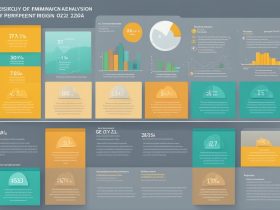DBE Address, Contacts phone number, Email and Social media; The Department of Basic Education was formed when the former National Department of Education was split into two: Department of Basic Education and the Department of Higher Education and Training. The DBE deals with all schools from Grade R to Grade 12, including adult literacy programmes. The aim of the DBE is to develop, maintain and support a South African school education system for the 21st century.
People: Upholding the Constitution, being accountable to the Minister, the government and the people of South Africa.
Excellence: Maintaining high standards of performance and professionalism by aiming for excellence in everything we do, including being fair, ethical and trustworthy in all that we do.
Teamwork: Cooperating with one another and with our partners in education in an open and supportive way to achieve shared goals.
Learning: Creating a learning organisation in which staff members seek and share knowledge and information while committing themselves to personal growth.
Innovation: Striving to address the training needs for high-quality service and seeking ways to achieve our goals.
Output 1: Improve the quality of teaching and learning
1.1 Improve teacher capacity and practices.
1.2 Increase access to high-quality learning materials.
Output 2: Undertake regular assessment to track progress
2.1 Establish a world-class system of standardised national assessments.
2.2 Extract key lessons from ongoing participation in international assessments
Output 3: Improve early childhood development
3.1 Universalise access to Grade R.
3.2 Improve the quality of early childhood development.
Output 4: Ensure a credible outcomesfocused planning and accountability system
4.1 Strengthen school management and promote functional schools.
4.2 Strengthen the capacity of district offices.
Also read UNEB Address, Contacts phone number, Email and Social media

DBE Address
DBE is located at Sol Plaatjie House, 222 Struben Street, Between Thabo Sehume and Paul Kruger Streets, PRETORIA.
DBE Contacts phone number
You can call them through the following phone number:
If you need verification, please call customer service at 1-877-452-3683.
For other problem call through this no. 202-366-4648 ; Fax: 202-366-5575
DBE Email Address
You can contact them through following email:
DBE Social media
Also you can visit DBE through their social media as follows:
Check them via Facebook: https://www.facebook.com/BasicEd/
Check them via Instagram: https://www.instagram.com/d
Check them via twitter: https://twitter.com/DBE_SA
Check them via YouTube : https://www.youtube.com/channe
DBE Programmes
ABC Motsepe Schools Eisteddfod
The South African Schools Choral Eisteddfod was introduced in terms of the protocol for the organisation, management, coordination and monitoring of school music competitions and/or festivals for schools in South Africa published by the Minister of Education in Government Notice No. 21697 of 27 October 2000 and amended on 08 February 2010.
Now in its 19th year, the Eisteddfod remains one of the most crucial school enrichment programmes coordinated by the Department of Basic Education to promote unity in diversity, national reconciliation, positive values, a new South African national identity, social transformation and social cohesion among school-going South African youth.
This year’s national competition, whose theme is “Celebrating 25 years of our democracy”, will take place as follows:
Date: Tuesday, 25 June- Friday, 28 June 2019
Venue: Rhema Bible Church in Randburg, Johannesburg.
ASIDI
The objective of ASIDI is to eradicate the Basic Safety Norms backlog in schools without water, sanitation and electricity and to replace those schools constructed from inappropriate material (mud, plankie, asbestos) to contribute towards levels of optimum learning and teaching. The Schools Infrastructure Backlog Grant (SIBG) funds the ASIDI portfolio.
The impact of ASIDI is far reaching. Firstly, it is providing infrastructure that exceeds the minimum norms and standards for educational facilities in South Africa. This, in rural and other economically depressed areas, is a significant development for communities who constantly refer to ASIDI schools as ‘universities’. Secondly, much more than brick and mortar, ASIDI schools are helping to restore dignity and pride for people who had gone far too long deprived of facilities that are taken for granted elsewhere.
For more information click here EMIS ,Gender Based Violence, National School Nutrition Programme
NSC Examinations
The National Senior Certificate (NSC) examinations commonly referred to as “matric” has become an annual event of major public significance. It not only signifies the culmination of twelve years of formal schooling but the NSC examinations is a barometer of the health of the education system.
The first national examination, under the newly elected democratic government was administered in November 1996, following a highly decentralized approach.
When will the final National Senior Certificate examination be conducted?
From October to December of each year.
Must a learner register to write the final National Senior Certificate examination?
Yes, before 15 March of the year that a learner will sit for the final examination. All subjects to be written, including those from approved assessment bodies must be registered.
Who is eligible to write the National Senior Certificate examination?
- Current Grade 12 learners
- Anyone who wants to improve on their previous NSC results and who is still a NSC candidate (i.e. has not had their certificate changed to SC) may register as a part-time candidate for the NSC examinations.
What are the minimum requirements for a candidate to obtain a National Senior Certificate?
The minimum requirements are:
- Achieve 40% in three subjects, one of which is an official language at Home Language level and 30% in three other subjects as stipulated in the policy.
- Provide full evidence in the SBA component in the subjects offered
What is the role of Umalusi?
Umalusi is responsible for the quality assurance of assessment in the Grade 12-year and issues the National Senior Certificate to successful candidates.
The supplementary examination in February/March has been phased out and is not available anymore. Candidates can however register for the June NSC examination to improve their results. For further details on who qualifies to register for the June examination, please click here.
Candidates may apply for re-checking or re-marking of examination answer scripts immediately after receiving their results. The closing date for application for a re-check or re-mark is usually 14 days after the release of the results and it is also indicated on the reverse side of the Statement of results. Application forms for re-checking or re-marking of examination answer scripts are available from schools/examination centres or education district offices. Read more…
Candidates’ results are normally withheld due to irregularities, but those candidates whose results have been blocked or withheld have the right to appeal. When a candidate is informed that the results are withheld, they can do the following:
- Enquire, preferably in writing, and request the reasons for the withholding of the results. Candidates may also contact the district office or their school for assistance
- You can visit the nearest office of the Department of Education in your area to enquire about your results or make any other examination-related enquiries you may have.
A new policy for the Senior Certificate(as amended) for adults and out-of-school learners was published in August 2014. This policy allows adults, who are 21 years and older to write the Senior Certificate examination, which will be based on the Curriculum and Assessment Policy Statement (CAPS), the curriculum that is currently being offered in schools. Read more…
What are the minimum requirements for further studies relating to Higher Certificate, Diploma and Bachelor Studies?
- Higher Certificate. The minimum admission requirement is a National Senior Certificate with a minimum of 30% in the language of learning and teaching of the higher education institution as certified by Umalusi, the Quality Assurance Council. Institutional and programme needs may require additional combinations or recognised NSC subjects and levels of achievement.
- Diploma. The minimum admission requirement is a National Senior Certificate with a minimum of 30% in the language of learning and teaching of the higher education institution as certified by Umalusi, the Quality Assurance Council, coupled with an achievement rating of 3 (Moderate Achievement, 40% – 49%) or better in four (4) recognised 20-credit subjects. Institution and programme needs may require additional combinations of recognised NSC subjects and levels of achievement.
- Bachelor’s Degree The minimum admission requirement is a National Senior Certificate with a minimum of 30% in the language of learning and teaching of the higher education institution as certified by Umalusi, the Quality Assurance Council, coupled with an achievement rating of 4 (Adequate Achievement, 50% – 59%) or better in four (4) recognised 20-credit subjects. Institution and programme needs may require additional combinations of recognised NSC subjects and levels of achievement









Leave a Reply
View Comments